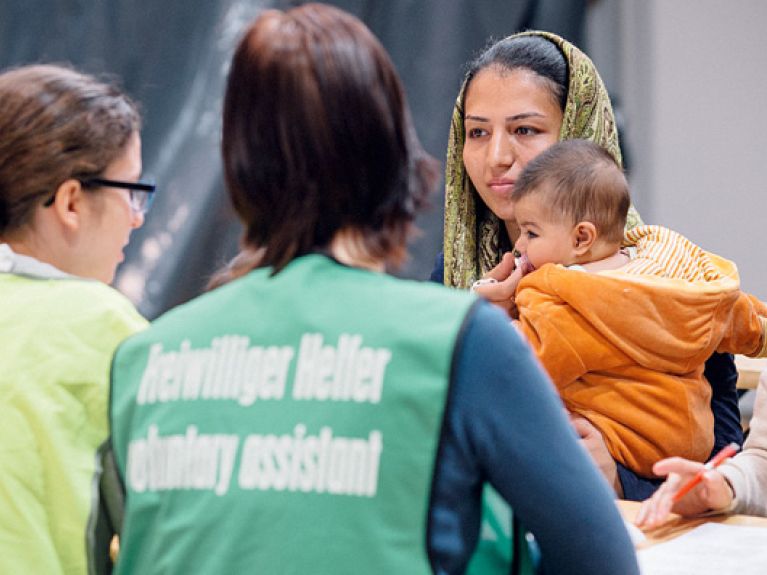Far-reaching cooperation
Cooperation at the Red Cross: German and Canadian helpers are supporting refugees.

Germany’s commitment to refugees has become a much-noted topic in North American politics, media, aid organizations and civil society. Federal Chancellor Angela Merkel was named TIME Magazine’s “Person of the Year 2015” for her role in managing the refugee crisis. Increased attention to and interest in the refugee crisis leads to support on the ground, which has also come, not least, from Canada – for example, from the Canadian Red Cross (CRC).
“No single country can bear the burden of this humanitarian crisis alone. A collaborative approach involving countries, humanitarian actors and the global community is needed to respond to ever-growing needs,” was how the President of the CRC, Conrad Sauvé, summarized the situation. He had made a visit to registration centers for refugees in Thuringia and Saxony to get an idea for himself of local conditions and to talk to helpers and refugees. For the President of the CRC it is clear that over the coming months a great deal more resources will be required. Help from Canada has already arrived: ten thousand beds and an equal number of blankets were sent to Germany by the CRC. In addition, 30 Canadian aid workers supported the work of the German Red Cross in 2015 in two refugee registration centers in Feldkirchen and Erding outside Munich.
Psychosocial support
In September Sarah Oberholzer, Disaster Management Coordinator of the CRC, made the trip from Toronto to Feldkirchen in Bavaria. Her task: to offer comfort and support to refugees who had come to Germany with no family and who need psychosocial support in particular. The young Canadian has been particularly impressed by the dedication of the professional helpers, but also that of the many volunteers, who come to the refugee center day after day to sort donated clothing, toiletries and toys – or who as doctors and nurses organize medical assistance on top of their normal working hours. And time and again assistance is offered by asylum seekers who have already lived in Germany for a while and who generously offer their services as interpreters for Farsi or Arabic.
“The collaboration across public, private, and non-profit sectors to welcome refugees into Germany has been truly remarkable,” comments Sarah Oberholzer. The widely-read Canadian newspaper Toronto Star takes a similar view, saying: “Germany opened its heart to Syrian refugees.” ▪

